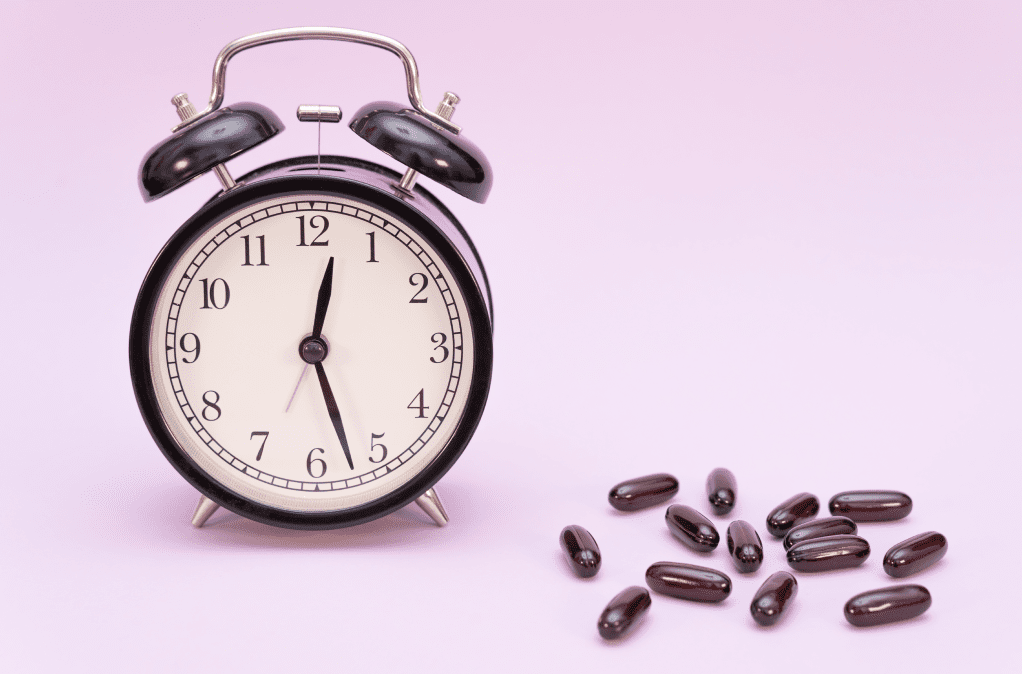It is estimated that 50 to 70 million Americans suffer from some form of sleep issue, and the average person gets less than seven hours of quality rest each night. If you struggle with a sleep disorder, you may wake up feeling exhausted or even short of breath. You may also experience cognitive issues, slower reaction times, irritability, or even depression. Melatonin has risen in popularity as a ‘natural’ alternative to conventional OTC and prescription sleep aids, but is it safe? [This article, “A Melatonin Overdose Is Dangerous: Safer Supplementation for Relaxation And Sleep” was originally published in Newshealthwatch]
Melatonin is a neurohormone produced by the pineal gland, and it regulates the sleep-wake cycle to be in sync with night and day. The pineal gland releases melatonin at night, sending a signal to your body that it is time to sleep. Factors such as stress, smoking, and shift work can lower your melatonin level and disrupt your sleep pattern. Exposure to bright light at night or lack of light exposure during the day may also interfere with your body’s ability to regulate melatonin levels.
It may seem like a natural solution to reach for a melatonin supplement when you struggle to fall asleep at night; however, high doses of melatonin may produce unpleasant side effects. Furthermore, there are few quality studies concerning long-term use. While even very high quantities of melatonin are unlikely to be fatal, melatonin overdose is possible. Keep reading to discover the signs of a melatonin overdose and some very promising supplement alternatives to help you get a good night’s rest.
Signs of a melatonin overdose
Your body may react differently to melatonin depending on your age, gender, health conditions, sleep issues, and when you take the supplement. Sensitivity to melatonin varies widely from person to person, but common side effects may include headache, dizziness, nausea, and daytime drowsiness.
Signs of a melatonin overdose include more serious symptoms such as depression, anxiety, tremors, irritability, disorientation, stomach cramps, loss of alertness, or even very low blood pressure. Furthermore, if you have too much melatonin in your system, you may experience rebound insomnia, and a melatonin overdose could keep you awake instead of putting you to sleep. A melatonin overdose may also induce lucid dreaming or vivid nightmares, which leave you feeling unrested in the morning.
How to avoid a melatonin overdose
To avoid a melatonin overdose, you should start with the smallest dose, gradually working your way up until you achieve the desired results. While some supplements contain as much as 5-10 mg of melatonin, most people can sleep better with about 0.5-3 mg. Because sensitivity to melatonin varies from person to person, there is no standard ‘safe’ dose, so it’s important to monitor how you feel and stay with the smallest effective dose. Also, be aware that while melatonin is nonaddictive, it is possible to develop a psychological dependency if this supplement becomes a part of your nighttime routine.
Of course, trying a safer alternative is the best way to avoid a melatonin overdose. Supplements such as magnesium, reishi, and tryptophan are gaining popularity as safer sleep aids that deliver long-term results without serious side effects. These promising melatonin alternatives achieve their results through subtler channels, calming the nervous system, helping your body to manage stress, and balancing neurotransmitters to help you prepare for a pleasant night’s rest. In addition, some may regulate melatonin naturally, helping you to achieve the right balance of this sleep neurohormone without making you vulnerable to a melatonin overdose.
Avoid a melatonin overdose with magnesium
Magnesium is an essential nutrient that plays a role in the healthy functioning of the immune system and muscles, maintains steady blood pressure, and keeps bones strong. It is estimated that as much as 48% of American adults do not get enough magnesium from diet alone. Natural sources of magnesium include dairy products, leafy greens, nuts, legumes, and whole grains.
Studies have shown that magnesium can make it easier to fall asleep and improve sleep quality. This essential nutrient achieves its calming effect through several different channels. Magnesium activates the parasympathetic nervous system, regulates melatonin naturally, and binds to gamma-aminobutyric acid (GABA) receptors. GABA is a neurotransmitter that quiets nerve activity and helps you relax. Magnesium may also reduce anxiety by regulating serotonin, another ‘feel-good’ neurotransmitter.
United States-based supplement maker Hello.Health offers a lab-tested magnesium glycinate supplement aptly named Happy Calm. CEO Pamela Wirth founded Hello.Health after embarking on a journey to resolve her son’s confounding physical and mental symptoms. Based on cutting-edge science, this notable supplement company’s products offer wellness solutions for both children and adults.
Avoid a melatonin overdose with reishi
Reishi (Ganoderma lucidum) is also called ‘the mushroom of immortality’ and was once used by Chinese royalty for its effects on longevity. This medicinal mushroom supports sleep with its calming effect on the central nervous system. As it relaxes your mind, reishi helps you ease into the start of the sleep cycle, preparing you for a good night’s rest. Some studies have even shown that reishi helps you spend more time in non-REM sleep, the deepest phase of sleep during which your body engages in important recovery processes.
As an adaptogen, reishi balances your body’s response to stress, helping you to relax at night and feel less fatigued during the day. You might consume reishi supplements for about 10-14 days before you notice a change in your sleep patterns, so consistency is key. Unlike melatonin, reishi does not cause drowsiness. Troop Mushrooms offers a delicious-tasting reishi gummy made with the highest quality organic ingredients. Troop Mushrooms is an ethically conscious company that ships its products in packaging made from 100% post-consumer recycled plastic. This notable supplement company offers a variety of organic mushroom gummies in tasty flavors like mixed berry, strawberry passionfruit, and peach mango.
Avoid a melatonin overdose with tryptophan
Tryptophan is another melatonin alternative that is rising in popularity. Tryptophan is an amino acid found in foods that contain protein, and it is converted to 5-HTP (5-hydroxytryptophan) in the body, which is then used to make melatonin and serotonin. Foods high in tryptophan include poultry, shrimp, eggs, and crab, and the average diet contains about 1 gram of this amino acid per day.
Tryptophan is gaining popularity as a supplement. At a dose of 1 gram, 45 minutes before bedtime, this natural product can decrease the time it takes to fall asleep without causing drowsiness the following day. Its effectiveness will not likely deteriorate with long-term use, and a 1-gram dose is completely metabolized by morning. Side effects of tryptophan are rare and mild, but may include headache and dizziness at very high doses.
This helpful supplement is nonaddictive and does not produce withdrawal effects when discontinued. When tryptophan is consumed as part of a healthy diet, it competes with other amino acids for transport to the brain. Therefore, foods that contain tryptophan do not produce a hypnotic effect, contrary to popular myth.BrainLuxury is a notable New York-based company that offers nutritional brain supplements to help you perform at your best.
This promising supplement maker, founded in 2020, offers a science-based sleep supplement called DELTA. This unique product is a drink formulated with tryptophan, glycine, essential fatty acids, and vitamins to help you fall asleep naturally without the morning hangover sometimes caused by melatonin supplements.
Getting a good night’s rest without risking a melatonin overdose
While melatonin has become a popular ‘natural’ solution to the all-too-common sleep problems facing us today, taking too much of this supplement may produce some unpleasant effects. While there is no recorded fatal dose of melatonin, the possibility of a melatonin overdose is real. Furthermore, as melatonin is categorized as a dietary supplement, it is largely unregulated, so capsules or gummies may contain quantities that differ dramatically from the amount listed on labels. Some melatonin supplements contain significantly less, or as much as five times the amount listed on the label.
Fortunately, several promising melatonin alternatives are emerging with fewer side effects and subtler means of helping you to get quality rest. If you are searching for a way to resolve your sleep issues without having to worry about daytime drowsiness, rebound insomnia, or even more serious side effects, then you might find a solution with magnesium, reishi, or tryptophan. We all need quality, restorative sleep to perform at our best during our precious waking hours, and maybe the right supplement can help.
Further reading
Women’s Health: Should You Start Taking Magnesium For Sleep?
Livestrong: The L-Tryptophan Dosage for Sleep NPR: Thousands of kids are getting sick from downing melatonin pills
Disclaimer
Important Note: The information contained in this article is for general informational purposes only, and should not be construed as health or medical advice, nor is it intended to diagnose, prevent, treat, or cure any disease or health condition. Before embarking on any diet or program of nutritional supplementation, it is advisable to consult your healthcare professional in order to determine its safety and probable efficacy in terms of your individual state of health.





